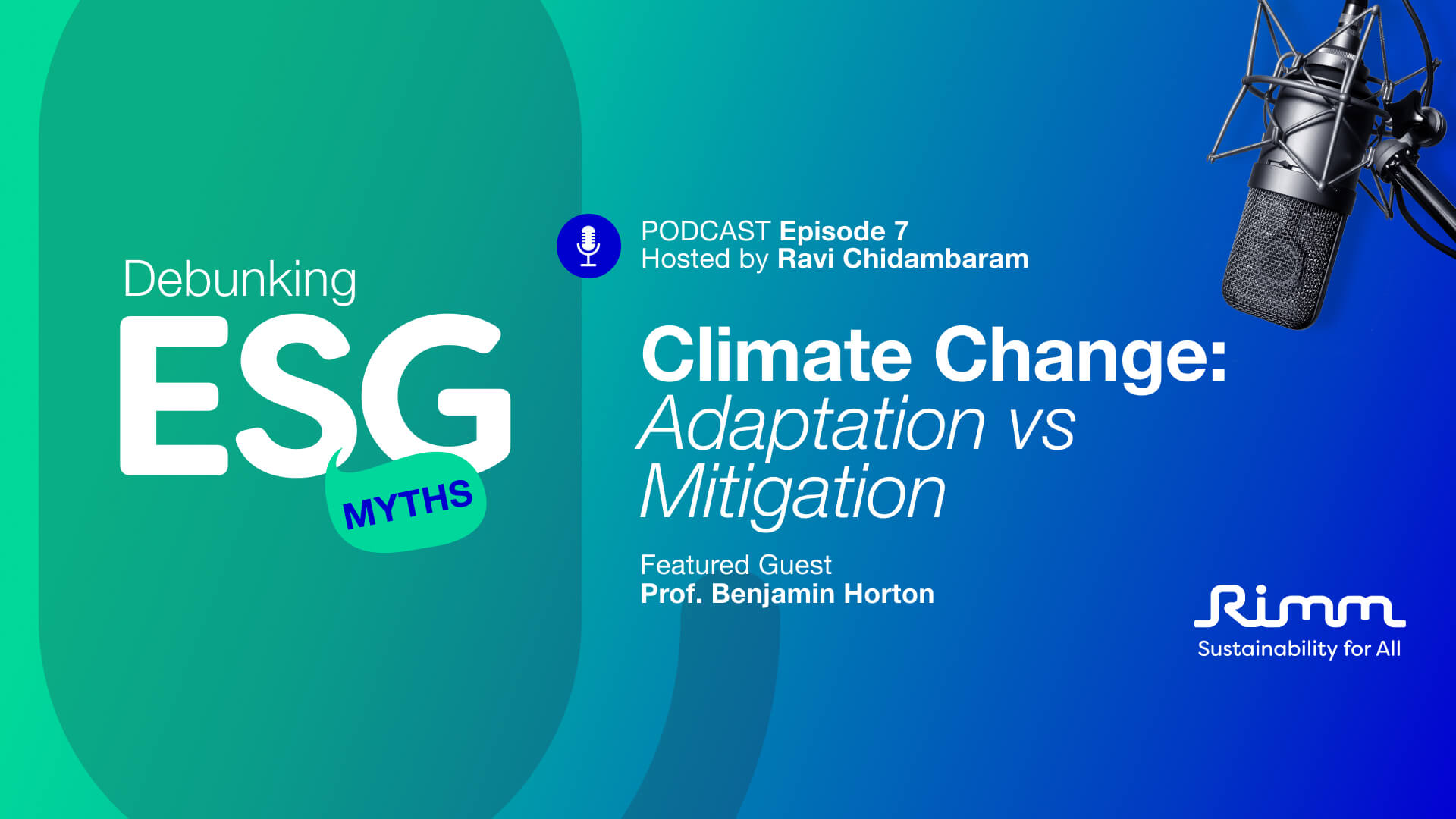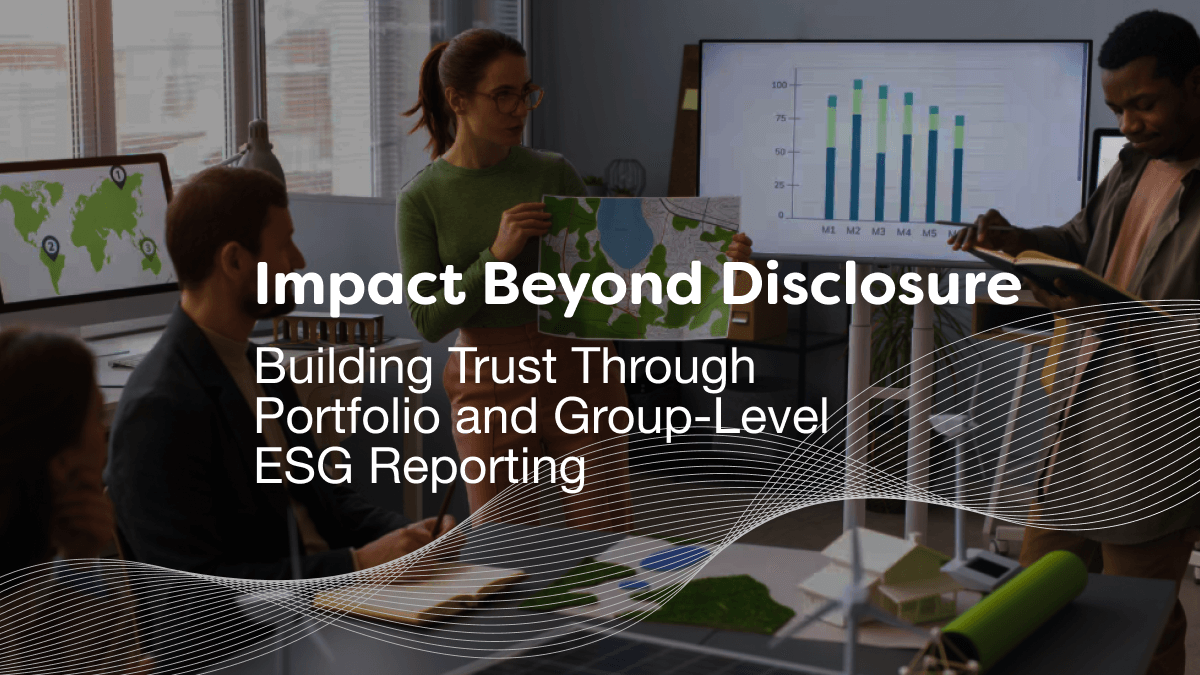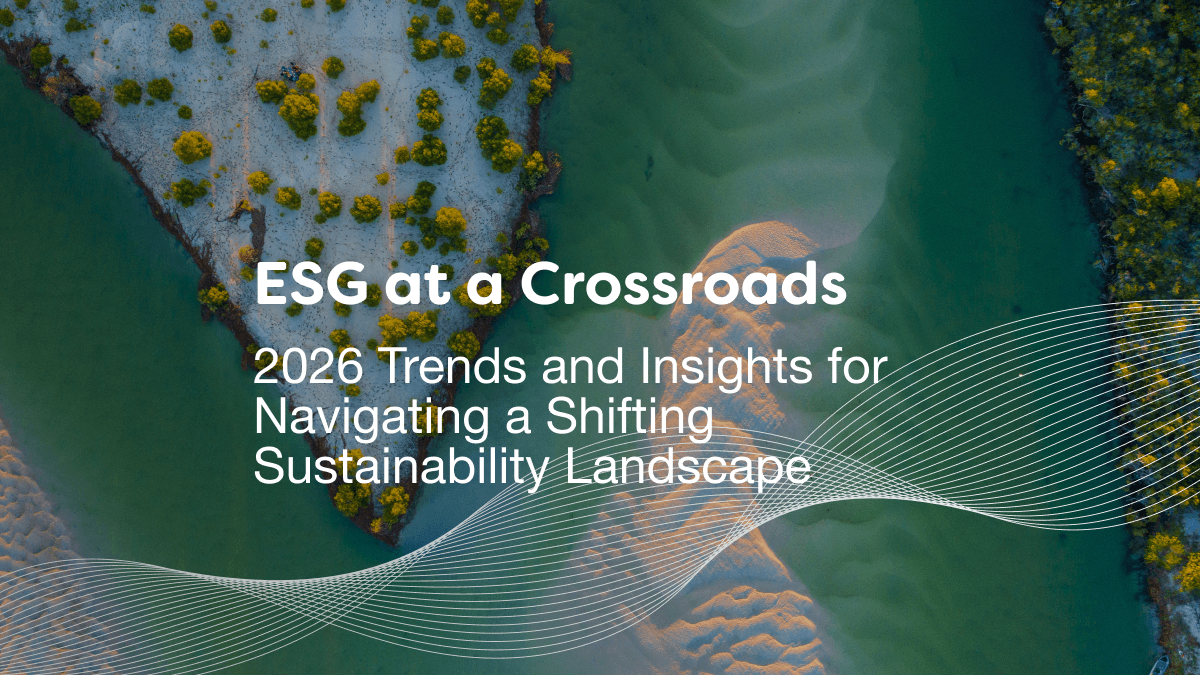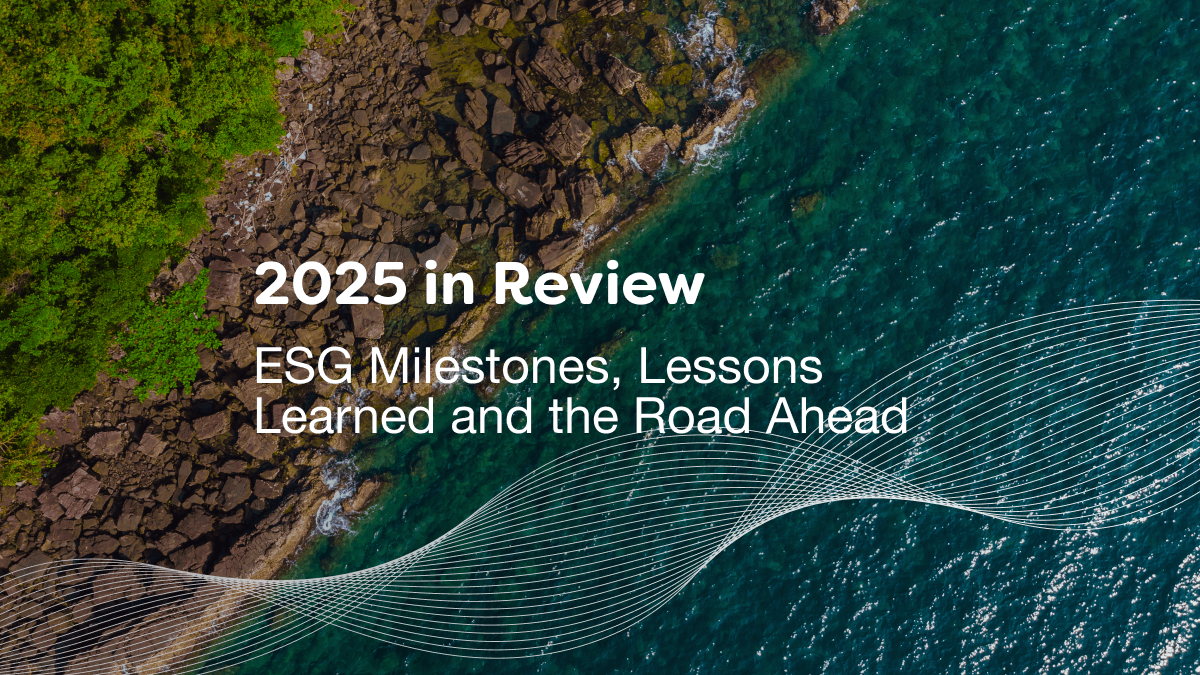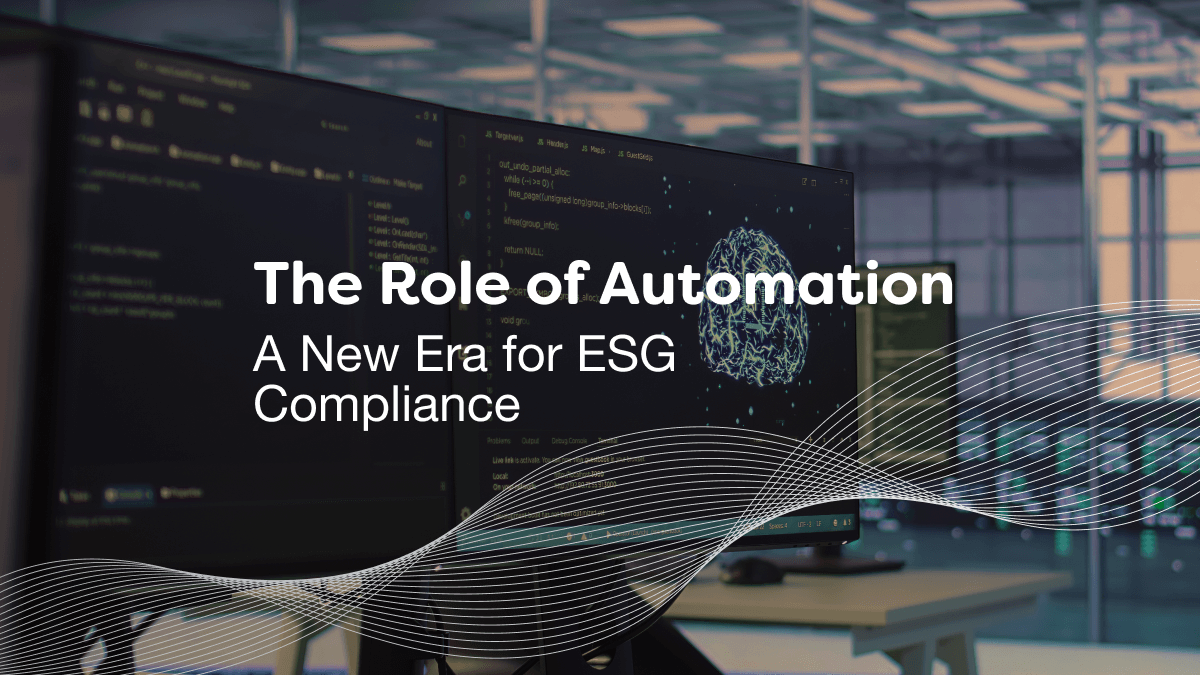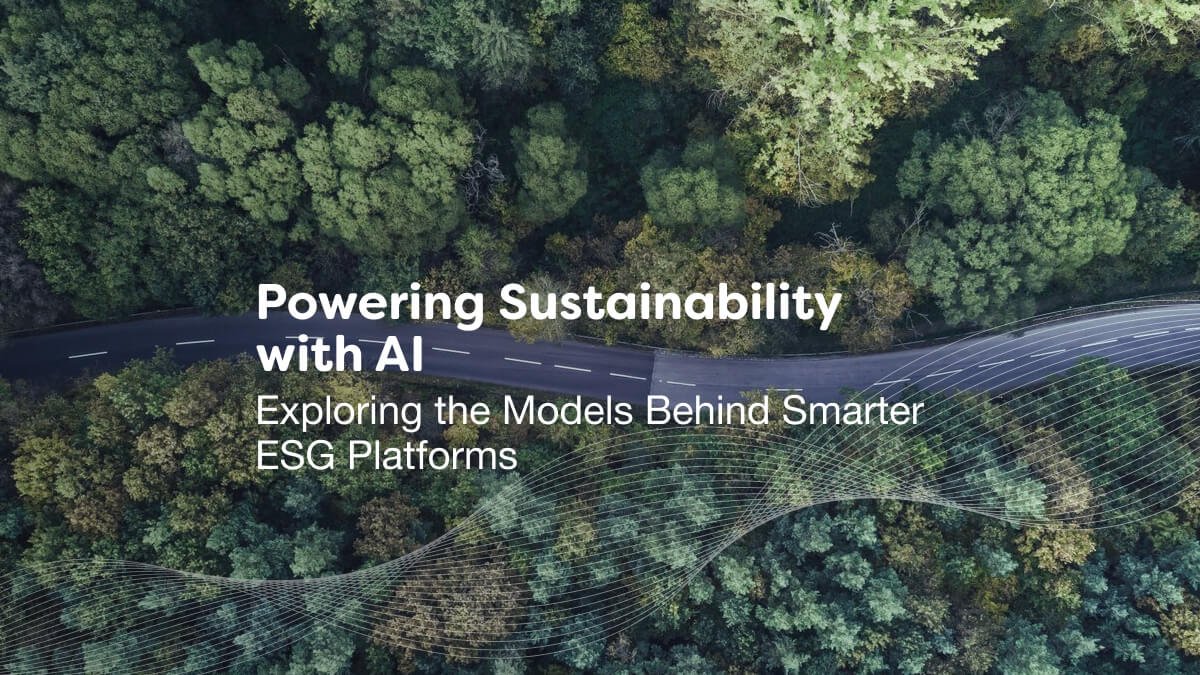Artificial Intelligence (AI) is reshaping the sustainability landscape, empowering businesses to manage Environmental, Social and Governance (ESG) commitments with greater efficiency, accuracy, and strategic foresight. With increasing regulatory demands and stakeholder expectations, organizations must process vast amounts of ESG data – tracking carbon emissions, assessing supply chain risks, and ensuring compliance across jurisdictions. Traditional methods struggle to keep pace, but AI-driven platforms are revolutionizing how companies collect, analyze, and act on sustainability data. From machine learning to natural language processing (NLP) and large language models (LLMs), AI is unlocking smarter ESG decision-making, allowing businesses to not only meet compliance requirements but also drive meaningful impact. In this blog, we explain the key AI models powering ESG platforms and how organizations can harness them to build a more sustainable future.
The AI Models Transforming ESG Platforms
“Artificial intelligence is more than just an automation tool, it’s a game-changer for sustainability. In the evolving ESG landscape, it enables organizations to process vast amounts of data efficiently, uncover meaningful insights, and better navigate complex regulatory requirements. At Rimm, we harness intelligent technology to streamline ESG reporting, empower data-driven decision-making, and transform sustainability from a compliance necessity into a true competitive advantage. With these innovations, businesses can move beyond manual processes and take a proactive approach to achieving their ESG goals.” – Dr. Faddy Ardian, Chief Data Scientist and Engineering.
AI in sustainability is not a one-size-fits-all solution. Different AI models serve distinct purposes, helping businesses navigate ESG complexities with tailored approaches. Here’s a breakdown of the most impactful AI-driven methodologies in sustainability platforms:
1. Machine Learning (ML): Improving ESG Performance and Data Accuracy with Predictive Insights
Machine learning models identify patterns in large ESG datasets, making sustainability reporting more accurate, proactive, and data-driven. As these models continuously learn from new information, they help reduce human errors and uncover insights that might otherwise go unnoticed.
In carbon accounting, machine learning refines Scope 3 emissions estimates by analyzing historical data and real-time supply chain information. This more precise analysis enables businesses to reduce their carbon footprints more effectively. Beyond carbon accounting, machine learning can also forecast water, waste, and raw material consumption, guiding organizations to optimize operations and improve overall ESG performance.
The predictive power of machine learning has multiple applications. It can detect anomalies to prevent misreporting and mitigate manual input errors during data collection. Additionally, predictive insights allow companies to adjust sustainability strategies in advance. By leveraging these capabilities, businesses can shift from merely reacting to ESG requirements to engaging in strategic sustainability planning—ensuring long-term resilience and gaining a competitive edge.
2. Natural Language Processing (NLP): Streamlining ESG Compliance
While machine learning primarily handles quantitative ESG data, another branch of AI—Natural Language Processing (NLP)—is particularly effective at analyzing qualitative information. Many ESG insights are derived from text-based sources such as corporate sustainability reports, regulatory documents and news articles.
As sustainability regulations evolve rapidly, global businesses face increasingly complex compliance challenges. At the same time, companies must track competitors and media coverage to maintain their market positions—a task that often requires dedicated teams. NLP enables AI-powered ESG platforms to interpret regulatory texts, extract relevant compliance requirements, and streamline corporate reporting. This helps various stakeholders develop more informed strategies. For instance, operations teams can create roadmaps by studying case studies from peers and aligning their activities with evolving regulations. AI-driven sentiment analysis further gauges public perception of a company’s ESG performance, allowing organizations to proactively manage reputational risks.
3. Large Language Models (LLMs): Enhancing ESG Analysis and Reporting
Large Language Models (LLMs) have revolutionized AI by enhancing NLP capabilities and transforming the way businesses handle unstructured ESG data. These models can analyze corporate sustainability reports, regulatory frameworks, and financial disclosures to extract actionable insights, improving data collection accuracy and capturing information at a scale not previously possible.
Many forms of unstructured data—such as text, tables, and charts—can now be processed with greater accuracy compared to earlier technologies. This capability accelerates the development of internal benchmarks and comparative analytics, helping companies advance in their ESG journey more quickly. For businesses in the early stages of ESG reporting, data often exists in diverse, unstructured formats like PDFs, images, and spreadsheets. LLM-based solutions streamline the extraction and analysis of this information, expediting the transition to standardized reporting processes.
Another significant advantage of LLMs is enhanced compliance. By interpreting regulatory contexts, these models help organizations identify potential risks, ensure adherence to evolving requirements, and draft ESG disclosures in alignment with global standards such as ISSB and GRI.
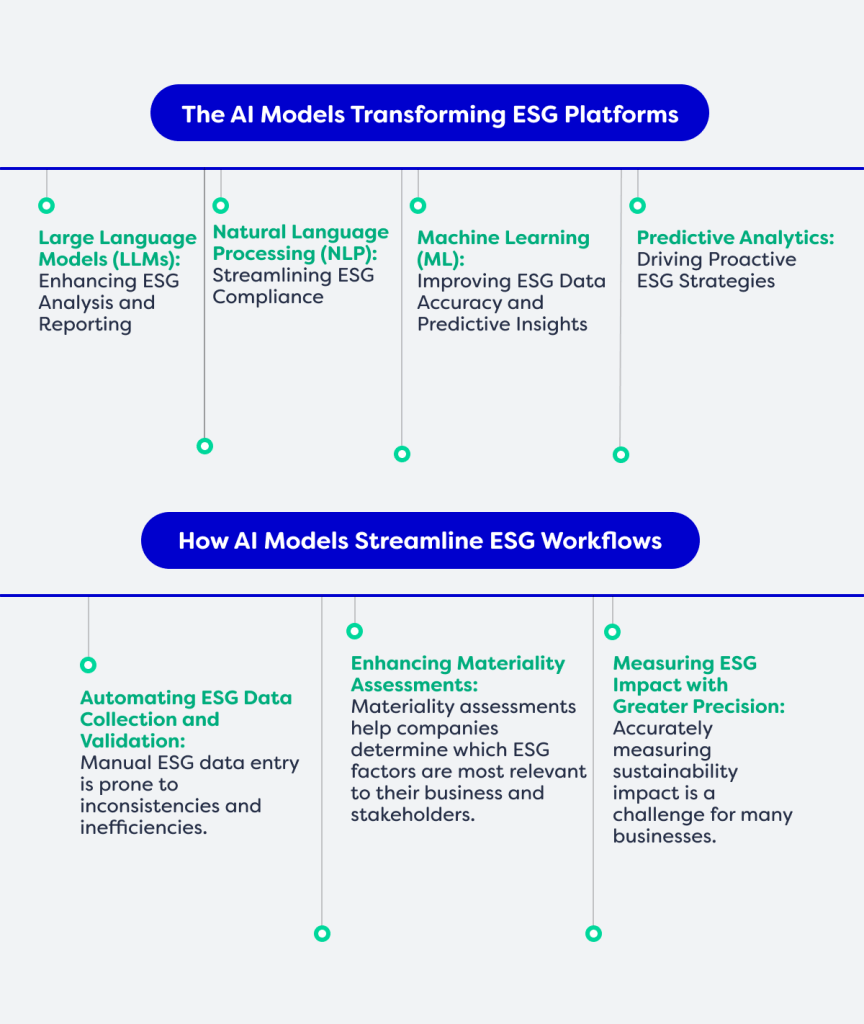
How AI Models Streamline ESG Workflows
AI-driven ESG platforms are not just about better data collection, they transform how businesses manage sustainability across operations. Here’s how AI enhances ESG workflows:
Automating ESG Data Collection and Validation
Manual ESG data entry is prone to inconsistencies and inefficiencies. AI automates data collection from multiple sources such as IoT sensors, supplier reports, and regulatory filings, ensuring real-time updates and accuracy. Machine learning algorithms detect anomalies in reported ESG metrics, flagging inconsistencies and reducing the risk of greenwashing.
For organizations tracking Scope 3 emissions, AI simplifies the process by analyzing supplier disclosures, and logistics data, making carbon footprint calculations more precise. This automation significantly reduces reporting burdens, allowing sustainability teams to focus on strategic decision-making rather than administrative tasks.
According to a Deloitte report, over 60% of global corporations face challenges in tracking emissions across complex supply chains due to data gaps and inconsistent reporting standards. AI-driven platforms leverage LLM and Machine Learning to calculate Scope 3 emissions with greater accuracy, helping businesses identify carbon hotspots and optimize reduction strategies. At Rimm, our AI-powered ESG solutions simplify this challenge by simplifying data collections from various unstructured data sources. Hence, we can help companies at various stages of the sustainability journey. Our machine learning can also help us identify outliers in the collected data and calculated emissions thus improving the tracking process. By automating emissions tracking, Rimm enables businesses to identify high-impact areas for decarbonization, set achievable reduction targets, and enhance sustainability reporting with confidence.
Enhancing Materiality Assessments
Materiality assessments help companies determine which ESG factors are most relevant to their business and stakeholders. AI accelerates this process by analyzing industry trends, regulatory developments, and stakeholder sentiment to identify material ESG issues dynamically.
For instance, an AI-driven platform can analyze millions of social media conversations, news reports, and investor briefings to assess which sustainability topics are gaining traction. Companies can then prioritize ESG initiatives that align with emerging trends, ensuring their sustainability strategy remains relevant and impactful.
Measuring ESG Impact with Greater Precision
Accurately measuring sustainability impact can be a challenge for many businesses. According to a PwC report, 67% of businesses struggle with accurately measuring their sustainability impact due to fragmented data and evolving regulations. AI-powered platforms are transforming impact measurement by tracking real-time data on carbon reductions, energy efficiency, and social initiatives. For example, AI can assess the environmental benefits of renewable energy projects by analyzing satellite data on deforestation or water usage in specific regions. By leveraging these insights, companies can quantify their ESG impact more effectively, improving transparency for investors and regulatory bodies.
Why Businesses Should Embrace AI for ESG Success
The integration of AI in ESG platforms is not just about keeping up with regulations, it’s about gaining a competitive edge. Businesses that leverage AI-powered sustainability tools benefit in several key ways:
- Improved Decision-Making: AI transforms ESG data into actionable insights, allowing companies to make informed strategic choices rather than reactive compliance moves.
- Efficiency Gains: Automation reduces manual workloads, freeing up sustainability teams to focus on high-impact initiatives rather than administrative tasks.
- Enhanced Transparency and Trust: AI-driven analytics improve ESG reporting accuracy, reducing the risk of regulatory fines and reputational damage.
- Future-Proofing Against Regulations: Predictive AI models help businesses anticipate and adapt to evolving ESG regulations, ensuring long-term compliance and resilience.
As the ESG landscape becomes more complex, AI is no longer a luxury—it’s a necessity. By embracing AI-powered sustainability platforms, businesses can stay ahead of regulatory challenges, enhance stakeholder trust and drive meaningful sustainability progress.
At Rimm, we digitally enable organizations with cutting-edge AI-driven ESG solutions, empowering them to navigate sustainability challenges with confidence. Let’s harness the power of AI to create a smarter, more sustainable future.
👉 Speak with our team of experts today here to see how AI can power your sustainability journey.

